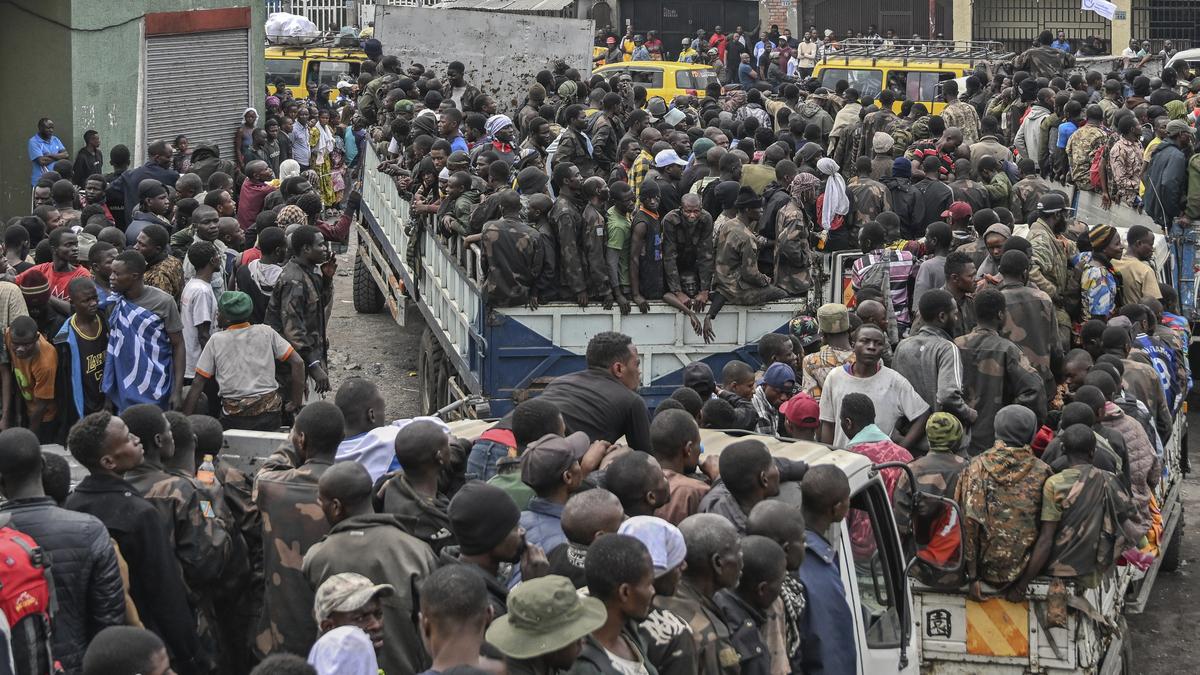
Divya Delhi: The March 23 Movement armed group declared its entry into Bukavu, the capital of South Kivu Province in the eastern Democratic Republic of the Congo. To avert a larger regional war, regional leaders met at the ongoing African Union meeting as the situation worsened. The M23 urged Bukavu villagers to create "vigilance committees to ensure security and to appoint honest and responsible people to lead them." The group's spokeswoman Laurence Kanyuka stated earlier that the M23 had reached the city. The M23 said it took Kavumu Airport, a key humanitarian and military supply corridor in South Kivu. The airport is a key defense for Bukavu, 30 km away.Despite claiming they wouldn't take the city, the group's fighters kept moving into Bukavu, local sources told Xinhua. Some soldiers and their friends were observed retiring to Uvira, a strategic commercial and transport hub near the Burundian border.The M23 offensive comes weeks after the militia claimed to have taken Goma, North Kivu's capital. Rebels have taken towns in South Kivu since early, causing alarm in Bukavu.The 's intensifying attacks have increased violence in the eastern DRC. Since late , the organization has conquered numerous significant locations, including Goma, a regional urban hub with over one million residents and 700,000 displaced persons, the border market town of Bunagana, and the mining city of Rubaya, recognized globally for its rich coltan resources. The organization has also set up parallel governments in controlled territory, naming a "provincial governor" in North Kivu last week. At the AU conference in Addis Ababa, Ethiopia, UN Secretary-General Antonio Guterres warned that the M23's ongoing advance in South Kivu could push the whole region to the brink. The increasing situation in the eastern was a significant issue on the summit's agenda."Regional escalation must be avoided at all costs," added the chief. "Military action won't help. "Dialogue must replace the deadlock."In early February, Burundian President Evariste Ndayishimiye warned that if fighting in the east continued, it may lead to a regional war. He cautioned, "If this continues, war may spread in the area."Analysts referred to deep-seated ethnic conflicts and competitiveness for the massive mineral wealth as primary drivers of the violence. The International Crisis Group warned in January that Goma's fall had uprooted thousands and brought the Great Lakes region closer to war.
- Education(148)
- India(771)
- Entertainment(399)
- Sports(272)
- Business(226)
- Bollywood Hollywood(95)
- International(196)
- Life & Style(91)
- Opinion(139)
- Educational(5)
- Crime(7)
- Technical(6)
- World(18)


